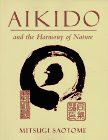 Why is that when you go somewhere you haven't been before it seems to take much longer than to come back from there? Why is it that when you go somewhere for the first time it seems much longer than the second, third, etc. times?
Why is that when you go somewhere you haven't been before it seems to take much longer than to come back from there? Why is it that when you go somewhere for the first time it seems much longer than the second, third, etc. times?
Last week I went to a school to give away a Children's aikido poster. I didn't know the area and it seemed to take at least thirty minutes to get there (I wasn't watching my watch but I looked at my map frequently thinking "is it still so far"?). Today (at the time writing this post at home) I went to that school again because last week it was completely empty (it turned out that they had half term and noone was around). It took me 15 minutes only and I wasn't walking any faster than the previous time.
The same thing happened when we were looking for flats to move into (which happened several times over our four years in London). It's certainly not only me who finds the first walk longer. But why is that?
Are we more alert to make sure we don't miss the destination and, at next time(s), we know the way already so we can think about our own business which makes time pass quickly? Maybe it's the same relativity Einstein described once.
"A man sits with a pretty girl for an hour and it seems shorter than a minute. But tell that same man to sit on a hot stove for a minute, it is longer than any hour. That's relativity."
| Relativity - Which one is hotter? | |
|---|---|
 |  |
Next time if I notice that a training (even if it's only an hour long) is too short I will need to think about what changes I have to make. Even one hour should be enough to get tired of properly practicing, I guess it's not a coincidence that the Hombu classes last an hour, too.
So I still can't properly answer my initial questions but at least I gave a couple of thoughts to relativity theory at an aikido training :). Let me know though if you can answer the above questions.










3 comments:
Great blog btw. Isn't there a Zen theory about timelessness existing as a mindset of "being in the present"?
Yes, there is. It's something like 'learn from the past, plan for the future but live in the present'.
Our sense of time is dependent on how many things we are attending to (rather than how much we are attending to them).
The more details we attend to, the slower time seems to travel; the fewer, the faster.
In general, the more familiar we are with something, the less attentive we are to it, and thus the faster time seems to flow relative to it.
Likewise, when our attention is absorbed by one thing, we stop paying attention to everything else that's going on around us and...again, the fewer, the faster.
This is why when we become hyper-attentive to our surroundings (as with some responses to extreme stress), time seems to slow down--the more detail taken in, the slower time seems to go.
Post a Comment